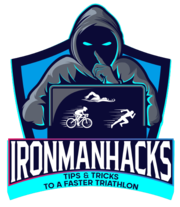You choose to label your pain level as you wish.

Former pro cyclist and Olympian Emma Pooley said it best after she set the women’s world record for Everesting, “It’s a privilege to be able to choose how you suffer – not everyone has that choice…”
“The best words of wisdom I have ever heard for moments like this were spoken by Connie Carpenter-Phinney before a sportive in Boulder, Colorado. She said something along the lines of: ‘It’s a privilege to be able to choose how you suffer – not everyone has that choice. Some people have their pain forced upon them.’”
“This is so deeply true when you reach that moment in any sport event when your body hurts, and you just want to stop and sit on the ground and hang your head between your knees. It’s so easy to feel sorry for yourself — but that’s totally mistaken! The “pain” is a choice, a privilege; and to indulge in self-pity is pathetic and contradictory.”
So first and foremost, consider whether or not you have even ever experienced real pain: Real pain in terms of permanent, abject suffering beyond your control.
While I can’t say whether you have or not, I can say many of us claim pain when we’re really just revelling in our own self-imposed efforts.
Those efforts and actions are by our own volition and for our own self-serving ends. Yet we love to complain and glamorize that pain.
Now that we’ve got that out of the way – you’re not being forced into a life of suffering – it becomes easier to not classify that discomfort as pain, but to choose to call it something milder like stress, exertion, or just effort.
Next, consider that pain is subjective. What may make a baby cry may hardly even be acknowledged by someone older and far tougher. Yet they’re both experiencing the exact same sensation.
According to a paper by Wilcox et al, in the US National Library of Medicine called, The Subjective Experience of Pain: an FMRI Study of Percept-related Models and Functional Connectivity, “sensitization/habituation is known to result in changed pain perceptions to the same stimulus over time.”
So basically, the more you hurt, the less you hurt. You get over it with increased exposure to it. No surprise. That’s part of training.
I like to say, “Whatever discomfort you feel in training is pain you won’t feel in the race.”
But what if in that race, you do not agree to classify that discomfort as pain? You refuse to call it pain. A, you have no right to, when other people are actually suffering; B, you are just changing the definition of what hurts.
It’s not pain.
